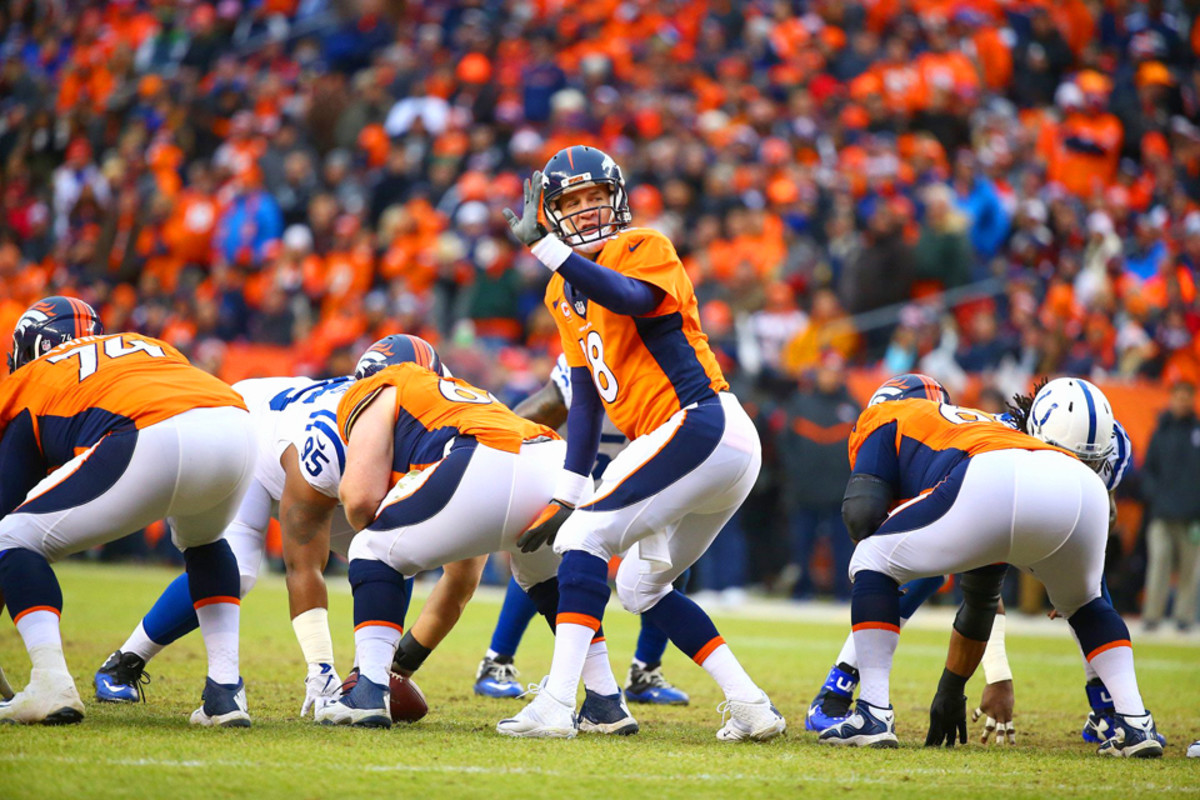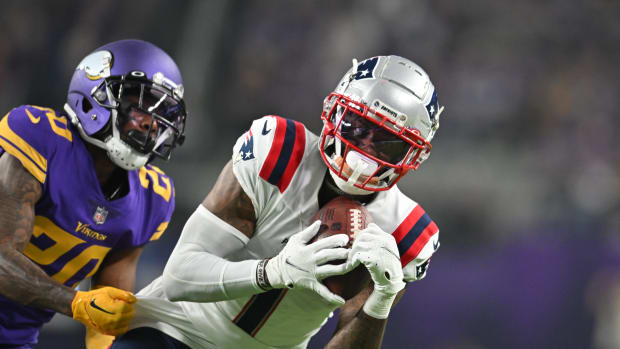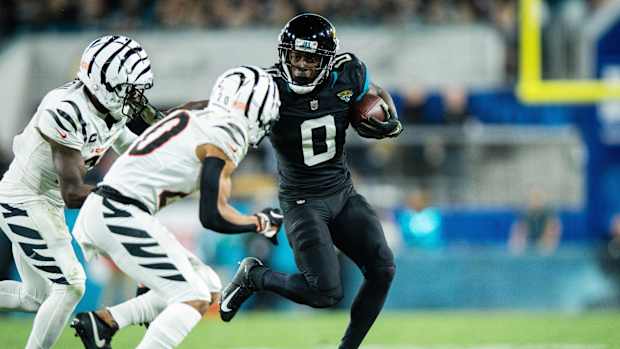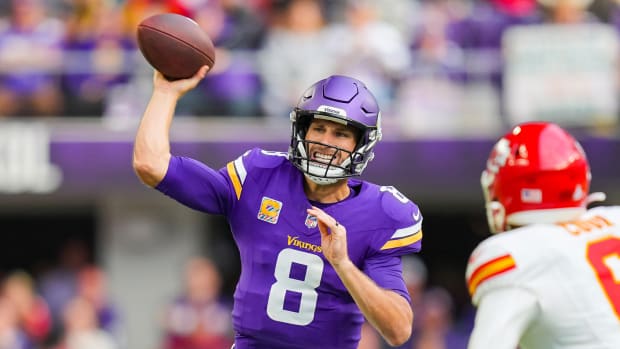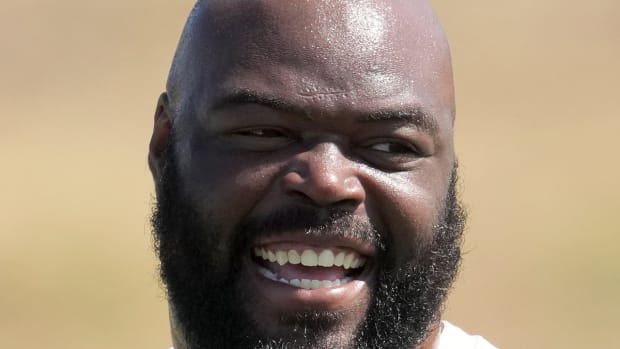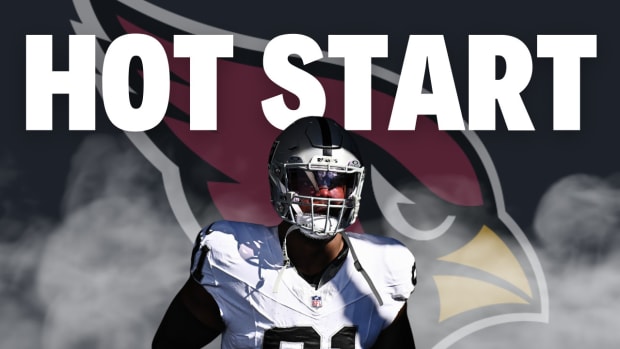Awaiting Peyton’s Decision
The end of the season was a forgettable one for Peyton Manning, especially the very end. He suffered a quad muscle injury, played badly in a disheartening playoff loss and witnessed the dismissal of his coaching staff amid reports of internal dysfunction permeating the organization. Now approaching the three-year anniversary since his release from the Colts, Manning sits at another crossroads as the Broncos welcome a new coach (Gary Kubiak) and a new system. While Manning has a business decision to make, part of the decision is personal, because it’s always personal. Let’s examine.
The Firing
John Elway, John Fox and Peyton Manning seemed to be joined at the hip over the last two years, harmonious central cogs in the Broncos’ success. Manning was equally effusive in crediting Fox and Elway as differentiators when he chose the Broncos over a dozen other suitors when he was a free agent. While Elway’s gravitas and similar career trajectory was obviously significant, Fox’s relaxed nature allowed Manning to transition from Indianapolis to Denver with seamless efficiency.
Ultimately, Fox’s relaxed and comfortable tone was his undoing. After last year’s Super Bowl pummeling at the hands of the Seahawks, the Broncos aggressively went all-in, adding DeMarcus Ware, T.J. Ward and Aqib Talib, among others. And after they regressed in these playoffs, Elway removed the perceived problem: the coaching staff.
The deterioration of Elway and Fox’s relationship serves as a microcosm of the blame game that frequently occurs when NFL teams underperform. Front offices feel they have done their job by stocking the team with talent to win; and coaches feel constricted by the personnel, upset to not have “their guys.” The two sides point fingers. With the Broncos, the power sits firmly on the personnel side, and Elway put the blame for this year’s early playoff exit squarely on Fox and his staff.
New coach Gary Kubiak arrives as a friend of the boss, having been a confidante and teammate of Elway’s for years. As we have just seen, however, Elway won’t hesitate to trump personal feelings with professional decisions, which brings us to back the central character in this plot, Manning.
Manning’s Contract
Manning, Fox and Elway after winning the AFC Championship Game last season. (John Biever/SI/The MMQB)
Considering the incredible leverage Manning had three years ago, the Broncos did well in structuring a contract that—beyond the expected $19 million average—protected the team’s risk in case of injury, retirement or release. There were no bonuses—only (large) salaries—and thus no proration of salary cap charges if Manning departed. Drew Brees’s contract, by comparison, had a $37 million signing bonus, immediately loading almost $30 million of future cap charges. Manning’s deal was commendably negotiated with an eye to the future.
The Broncos must have needed some temporary cap room in early 2013, as they advanced Manning $10 million—$5 million from 2013 and $5 million from 2014—causing some future proration. Now, if Manning doesn’t return next season, there would be a cap charge of $2.5 million and an accelerated charge of $2.5 million from 2016. Compared to most contracts for franchise quarterbacks, that is a very low remaining number.
The contract forecasts a decision date for Manning, with his $19 million salary becoming guaranteed on March 9, the last day of the 2014 League Year. Thus, almost three years from the Colts’ decision point—Manning was due a $28 million option payment on March 8, 2012 had he stayed in Indianapolis—the quarterback is at a similar crossroads. This time it is his within his control, or so we think…
The Decision
Elway unsurprisingly stated that the Broncos want Manning back and that they would allow him time to recharge before making a decision (though it must be made by the league’s March 9 deadline).
Listening to Elway talk about Manning and seeing his coldhearted dealings with Fox, I was reminded of the Packers’ circumstances with Brett Favre in 2008. In prior offseasons, the team’s management and coaches had courted Favre to return, visiting him in Mississippi with a clear message of wanting him back. After the 2007 season, however, no one said, “We really want you back!” Favre was essentially told, “We are letting you decide, so take your time—but not too much time.” The messages may sound similar, but they are very different. One is emotional courtship; the other is detached deference. Sensing the lack of warmth that he was accustomed to and facing a team-imposed deadline that coincided with the start of free agency, Favre retired in March 2008 before reversing course in July.
Elway may not be indifferent to Manning’s return, but he appears to be publicly “leaving it up to him” rather than beseeching his return. As stoic as Manning is, everyone likes to be recruited. While it is much more likely he wants Manning back than not, Elway has shown himself unafraid to make callous decisions as the steward of the Broncos’ business.
Even without a courtship from Elway—and there may be some of that from Kubiak—I do expect Manning to return and play for his scheduled $19 million. Between now and his decision, however, it will be interesting to see whether the Broncos seek Manning’s return rather than simply declaring, “It’s up to him.”
Five Thoughts About Championship Weekend
1) The NFL’s continued partnership with CBS for Thursday Night Football seemed a natural extension given that television ratings soared past previous standards from the NFL Network (the games will continue to be simulcast on NFLN). Prior to this season, the highest-rated network for Thursday night entertainment programming was CBS. Thus, the NFL instantaneously maximized revenue while eliminating its most formidable Thursday night competition. These “win-win” negotiations typify the diabolically strategic deals that make NFL owners nod approvingly.
2) Did we really think we would get through another postseason weekend without a controversy? The issue of deflated balls in New England—PSI: New England—shows another part of the NFL’s underbelly that has the potential to be exploited. Late Tuesday night, an ESPN report by Chris Mortensen cited league sources that said 11 of the Patriots’ 12 game balls for the AFC title game were under-inflated by two pounds each. The question now becomes: under whose direction? The answer will loom large over Super Bowl week, if not announced by then. The bigger issue for the NFL, though, is the same one that has hovered over the entire 2014 season: credibility. Still reeling from the Ray Rice saga, the league’s integrity is being called into question once again. I wonder if the NFL has Robert Mueller on retainer?
Super Bowl 49
3)
I would like to hear more about the medical attention that Russell Wilson didn’t receive after taking a violent blow while trying to make a tackle after throwing an interception. The TV broadcast reported that he was examined for “two seconds,” something the NFL probably didn’t want its fans to hear. While I’m not suggesting that Wilson played with a concussion or that the Seahawks violated protocol, it seemed to be the type of high-impact collision that would merit a longer look, especially for the team’s most important player in its most important game.
4) Despite Andrew Luck losing badly and Wilson playing poorly for most of his game, the contract trajectories for both quarterbacks are about to soar. Now with three seasons in the league, the window to renegotiate their relatively inequitable contracts has opened. Seattle has leveraged Wilson’s pedestrian wages with aggressive acquisitions via trades and free agency, and Indianapolis still hasn’t paid Luck in three years what they would have paid Manning in a one-time bonus before releasing him. My sense is both players will soon surpass the current standard for elite quarterback contracts—$20 million per year, $60 million guaranteed.
5) My readers certainly know of my near-decade in Green Bay and unavoidable bias to the Packers. Admitting to that, I am still in shock about Sunday’s result, even more so than I was after the “Fail Mary” game at the same venue in 2012. Five days later, the outcome still doesn’t seem real. The last game of any playoff team stings throughout the offseason, but this one will linger longer for Packers management, coaches, players and fans (my Twitter feed can attest to that).
Pro Bowl Pay
Finally, I always receive questions this time of year about Pro Bowl pay, so here are the facts. Players on the winning team receive $55,000; players on the losing team receive $28,000. Thus, a member of the Pro Bowl winning team will receive more ($55,000) than a member of the Super Bowl losing team ($49,000). Now it’s clear why the NFLPA wanted to keep this game alive.
Players who are medically excused—and there are a lot of those this year—do not receive a share. Finally, members of the Super Bowl teams who were selected to the Pro Bowl (but obviously can’t play in it) will receive the midpoint of the winner/loser pay, or $41,500. Not a bad payday for those players as they fly to Arizona on Sunday.
Follow The MMQB on Facebook, Twitter and Instagram.
[widget widget_name="SI Newsletter Widget”]
































